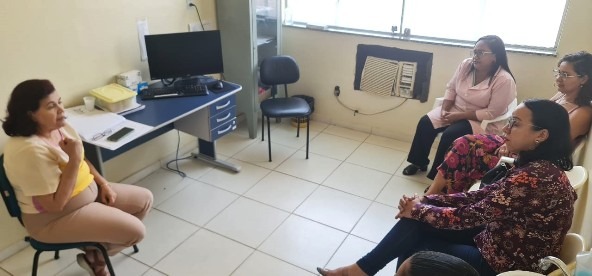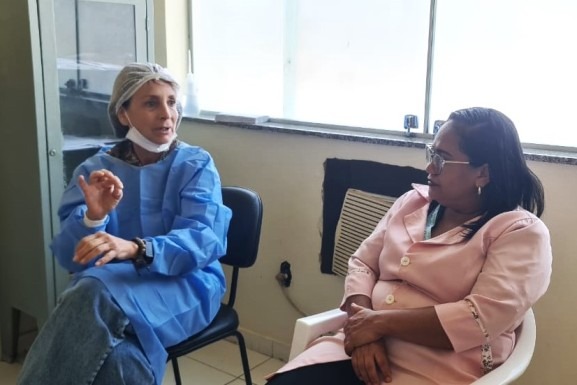
Improving the quality of care provided to patients with leprosy was the main objective of the training, which was implemented through a partnership between Sisao (Minister of Health) and the Ministry of Health, and targeted professionals working at the Coronel Mota Clinic, the country's main reference in treatment. From illness.
This activity, which has been taking place since Monday, April 7th, continues the updates implemented in April, when municipal primary health care professionals received training with support from the Pan American Health Organization and the Sasakawa Health Foundation.
 “When we were designing this training, we decided to prioritize these professionals because we saw the need for it. They had already expressed this interest, and this was the opportunity we had to implement it,” said Director of the Leprosy Control Centre, Rita Fonseca.
“When we were designing this training, we decided to prioritize these professionals because we saw the need for it. They had already expressed this interest, and this was the opportunity we had to implement it,” said Director of the Leprosy Control Centre, Rita Fonseca.
In total, the training included seven professionals from the sector specializing in the care of leprosy patients, including nurses, pharmacists and dermatologists, such as Alba Palermo.
“It's very important, especially since it's good to recycle; there's always something new, Dr. [Roseane Pereira] I came from Brasilia to find out what's new and what we can improve in our service. Training is great for our knowledge. This allows us to remove all doubts that may arise and allows us to train our eyes and touch and expand our perception from the moment of receiving knowledge.”
For dermatologist and technical advisor at the Ministry of Health, Rosanne Pereira de Dios, late diagnosis still represents the biggest challenge the country faces in combating the disease.
“As a public health problem, and Brazil is the second country with the highest number of new cases in the world, the Ministry of Health needs to take this precautionary approach, especially in remote areas. As long as we have someone with the disease, they can be considered a contagious patient, especially if they do not undergo treatment.” We must deal with it properly to eliminate leprosy as a public health problem, break the chain of transmission of the disease, and prevent disabilities, consequences, and deformities resulting from the disease.
It is important to note that in addition to combating stigma and bias surrounding the disease, the main goal of the Ministry of Health is to eliminate leprosy by 2030, thus achieving the WHO global strategy.

